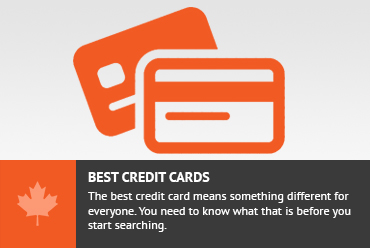When travelling long-term, what do you do for a legal address? How do you deal with mail? What about legal documents and other official paperwork you need to keep on hand? Read on for these answers, and more.
Dear Nora,
There’s so much to organize when preparing to travel long-term! My biggest challenge at the moment is mail. How do I deal with mail while I’m abroad? What do I do for an address, especially for important stuff that can’t be sent electronically? -Miriam
I’m asked this question a lot. The matter often boils down to more than just mail too; the specifics of your situation will dictate what you need to do. Most of my colleagues have a friend or family member deal with mail, but that’s not an option (or preference) for everybody. Here are your options to deal with mail, and other pesky paperwork issues like banking and legal documents.
Step 1: Designate an Official Representative
Your official representative is simply somebody in your home town/country who has backups of your paperwork, and can take care of certain matters in your absence, or advocate on your behalf if you’re in a bind abroad.
Here are some examples of how your official representative can be invaluable:
- Mail: They can receive and alert you to anything of importance that arrives in the mail, and even help you to deal with it if necessary. They can also set aside any mail you’ll need to look at when you return. If you receive payment in the form of a cheque (especially relevant for digital nomads, but also applicable for random things – such as perhaps a travel insurance reimbursement…and yes, I speak from experience), they can deposit the cheque into your bank account for you.
- Phone Number: By providing their phone number as your main contact number (ie: your “home” number), they can alert you if your bank or credit card company calls (as has happened to me numerous times in the case of fraud alerts when I use my credit card abroad, or if you need to validate accounts. For example, PayPal occasionally requires you to validate your account by receiving a phone call to the number on file and entering in a 4-digit code provided online – that you would message to your official representative.
- Documents: They will have all your information on hand and keep copies or originals of your important documents, such as bank account information, legal documents, insurance policies, Wills and Powers of Attorney, etc. This way if you lose your originals and/or all your own copies, you’ve got a backup.
Official Representative Workarounds: Don’t have anybody? No problem.
Having somebody you trust in your home town/country simply makes things easier. But if nobody in your life fits that bill, you can implement the following strategy:
- Mail: Use a virtual mailing service to receive your mail (and in some cases, deposit cheques). If they can’t deposit cheques, some banks now have smartphone apps that allow you to deposit a cheque by simply taking a picture of it. Your mailing service can either forward you the original cheque, or provide the required pictures. Note: It’s rare that foreign cheques in other currencies can be processed this way. I receive regular cheques in $USD and my official representative has to walk them to the bank each month. I’m told that even if I opened an account in $USD, because it’s a foreign cheque, it needs to be handled at a teller. More on virtual mailing services below.
- Phone Number: Get an online phone number to use as your main contact number. While Google Voice still doesn’t offer this service for Canadian phone numbers, other services do (such as Skype, and various smartphone apps), usually for a monthly fee.
- Documents: Ideally there’s somewhere or somebody who can store a folder of official documents you need to keep but simply can’t travel with. If not, then be extra vigilant about carrying copies and backups of everything.
Step 2: How to Deal With Mail
There are two steps to deal with mail while abroad: sorting out a mailing address, and reducing the amount of mail you receive. It’s important to start this well in advance of your departure, as you’ll see below. The longer the better: I recommend a minimum of two months, preferably three or four.
Reducing Your Mail
These days, you don’t need to receive much mail. Here’s how to reduce the amount of (paper) mail that comes in:
- Every time a piece of mail arrives that will be unnecessary while you’re travelling, contact the sender and request to be removed from their mailing list. Cancel all subscriptions (or place them on hold).
- For everything else you receive that you want/need to continue to receive, switch to electronic statements wherever possible. You can do this for almost everything except certain correspondence from government offices (such as mail pertaining to your driver’s licence or taxes).
Changing Your Address
Next up is to have a valid mailing address for the stuff you can’t go electronic with. This is necessary to maintain your permanent residence, deal with taxes, health care, driver’s licenses, etc. (See also: Managing Legalities While Travelling)
- Option 1: If your official representative is up for the task, this will be the easiest and cheapest option to deal with mail. They can alert you (by email, instant message, etc) whenever something requiring your attention arrives, and if action is needed that you can’t do from abroad, they can help you. In my experience, I’ve been able to deal with almost everything from abroad, with a simple scan/picture of the correspondence in question.
- Option 2: If this isn’t possible or you’d prefer to maintain autonomy, then set up an address through a virtual mailing service. More on this below.
VIRTUAL MAILING SERVICE BASICS
A virtual mailing service gives you a physical address (ie: in most cases it’s not a P.O. box), to which you can direct all your mail and set as your permanent address. In many cases there is even a physical person there who can sign for packages. If you have a business you plan to keep alive while you’re travelling, a virtual mailing service might be for you, with a full suite of services and sometimes even prestigious address locations.
How it Works
In a nutshell, a virtual mailing service will send you an email when something arrives for you with a scan of the front of the envelope. From there you can decide to have them open and scan the contents to email to you, forward the letter to wherever you are, or recycle/shred the letter. The same applies to packages.
In addition to this, many services offer all kinds of extra options like depositing cheques, fax services, and even personal shopping. Most of these come with extra fees, of course.
Fees
Speaking of which, the fees for virtual mailing services vary quite a bit, depending on how much mail you get (and what kinds of extras you want). In almost all cases there is a monthly fee, plus extra per-item charges for forwarding, scanning, etc. Some plans include a free quota in the monthly fee and charge for anything over and above it.
Companies That Deal With Mail
Here is a list of virtual mailing service companies that deal with mail. The services and prices vary; look around to find one that feels good for you.
CANADA
Canadian Address – This is the only virtual mailing service I found with no monthly fee (only a $20 account setup); they simply charge you for what comes in and what you want to do with it. And the prices seem quite reasonable.
eSnail.ca – Monthly Fees: $25-$55
INTERNATIONAL (INCLUDING CANADA)
Regus – Regus offers full virtual office services around the world, which of course includes virtual mail handling. Monthly Fees: From $37
Anytime Mailbox –These guys have an ever-expanding network of addresses around the world, which, at last count, included nine countries. Monthly Fees: $6-40
For readers in other countries, here are some options:
USA
Earth Class Mail – Earth Class Mail is arguably the industry leader in virtual mailing services, and tends to target businesses. Most people I know who use them also complain about the cost. They do have a pretty full suite of services on offer; if you’re operating a complicated business from abroad, it could fit the bill. Monthly Fees: $99-$179
US Global Mail – Monthly Fees: From $10
Virtual Post Mail – Monthly Fees: $10-$60
Post Scan Mail – Monthly Fees: $15-50
Traveling Mailbox -Monthly Fees: $15-$55
PO Box Zone – Contrary to its name, your address will not be a PO box! Monthly Fees: $8-21
UK
UK Post Box – Monthly Fees: Pay-as-you-go – 60 GBP
Planning a Trip? Read These Before You Go…
Managing Legalities While Travelling Long-Term
How to Sell Everything to Travel
The Ultimate Working Holiday Visa Guide for Canadians
19 Mistakes People Make When Starting to Travel
The Ultimate Travel Insurance Guide
20 Things to do Before You Travel Long-Term
Dear Nora, virtual mailing services











That’s it. No papers should ever be anywhere except the inbox or in your filing system. It’s simple and efficient. Thanks Nora for sharing.
Thank you, Jane!